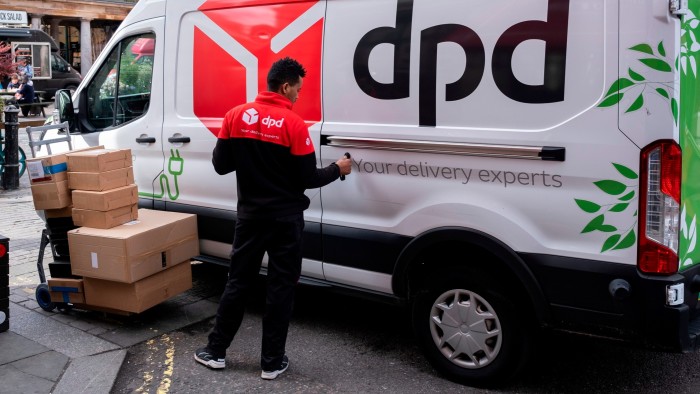Britain’s vanmakers have called on ministers not to penalise auto groups that miss electric vehicle sales targets next year, as flatlining sales remain at little more than half quota levels set by Whitehall.
Just 5.7 per cent of vans sold between January and November were zero emission, down from 5.8 per cent a year earlier, figures from the Society of Motor Manufacturers and Traders (SMMT) showed earlier this month. Annual sales figures will be released early in the new year.
The level is far below the 10 per cent target for 2024 that vanmakers must hit to avoid crippling fines, under the government’s EV quota scheme that ratchets up targets each year.
From 2025, van groups that fall short of the targets will face fines of £18,000 per vehicle sold over the limit.
Nicola Walker, head of government affairs at Ford, said that auto groups need a “moratorium” on fines in the coming year because of poor sales levels.
Auto groups are already cutting jobs in the UK, and have warned ministers that money spent on fines cannot be used to fund further EV development.
“We have told the government how much [in fines] we are liable for [should nothing change],” Walker said. Ministers “respected our clarity”, she added.
Ford is shedding 800 UK roles as part of wider European cuts because of weaker EV demand, while Vauxhall owner Stellantis last month blamed the UK’s quota scheme for its decision to close the Luton van plant, a move that puts 1,100 jobs at risk.
Ministers are now reviewing the UK’s rules, which were drawn up by the previous Conservative government and also covers EV car sales, after demand failed to take off as fast as expected.
A consultation launched on Christmas Eve includes a review of current incentives to bolster electric vehicle purchases, as well as considering whether to allow carmakers to offset higher electric van sales against lower EV car deliveries.
Unlike cars, where mainstream consumer EV incentives have been scrapped, electric van buyers can receive a grant of up to £2,500 on smaller vans and £5,000 in larger models under a scheme that was extended until 2026 in the autumn Budget.
Ford and Vauxhall-owner Stellantis — two of the largest van sellers in the UK — have both warned that cutting incentives would further stifle demand.
Walker said that further incentives were “key” to helping manufacturers meet their targets.
“Flexibilities [that allow carmakers to avoid some fines under the scheme] are all good, but [we need] the market moving,” she said.
While electric cars account for almost one in five new models sold — helped by generous company car tax incentives — van sales remain low, with business owners still concerned about downtime required for charging.
“Unless the practical limitations of EV vans are overcome, operators will have little incentive to bring these vehicles into their fleets,” said Chris Ashley from the Road Haulage Association.
Under the current rules, a percentage of vans sold each year must be zero emission with the target climbing annually from 10 per cent in 2024 to 70 per cent in 2030.
EV car sales have grown, but also remain below their target, with around 18 per cent of sales between January and November, compared with a goal of 22 per cent for the year.
Auto groups are also concerned that public reports of EV owners having poor charging experiences are putting people off trying out the vehicles.
The challenge of selling EVs has become greater after “numerous recent inaccurate reports of what electric vehicles are like to live with”, said Lee Titchner, director of Stellantis’ van unit in the UK.
Titchner argued that more customers needed to test electric vans and see how they would fit well into their business, “because once driven and understood, they are a great proposition for many”.
Stellantis has also called for a “concerted focus” on providing more on-street chargers to encourage purchases.
SMMT boss Mike Hawes said that EV van sales are “lagging significantly behind mandated targets, as concerns about operating costs and, especially, van-suitable charging infrastructure are causing businesses to delay”.
Hawes welcomed the government’s “pledge to review the regulation to ensure it reflects market realities”, but said it “must also be accompanied by regulation that compels the right chargepoints to be put in the ground and at pace”.
The Department for Transport said: “We have announced £120mn of new funding to support the uptake of zero emission vans, in addition to over £2bn to support the automotive industry make the transition.
“The government’s long-standing commitment is to phase out the sale of new petrol and diesel cars by 2030 — this has not changed.”
Read the full article here

